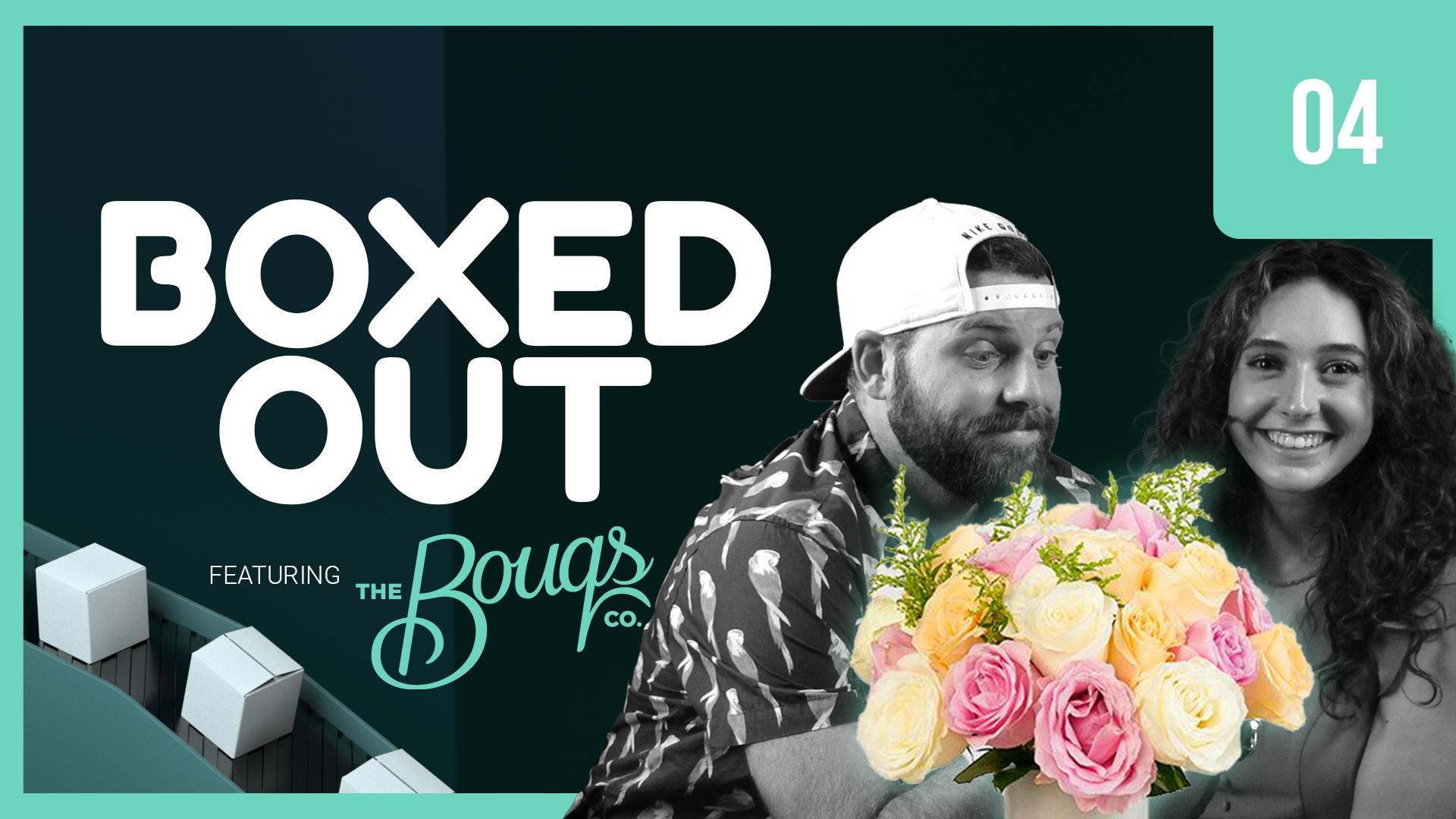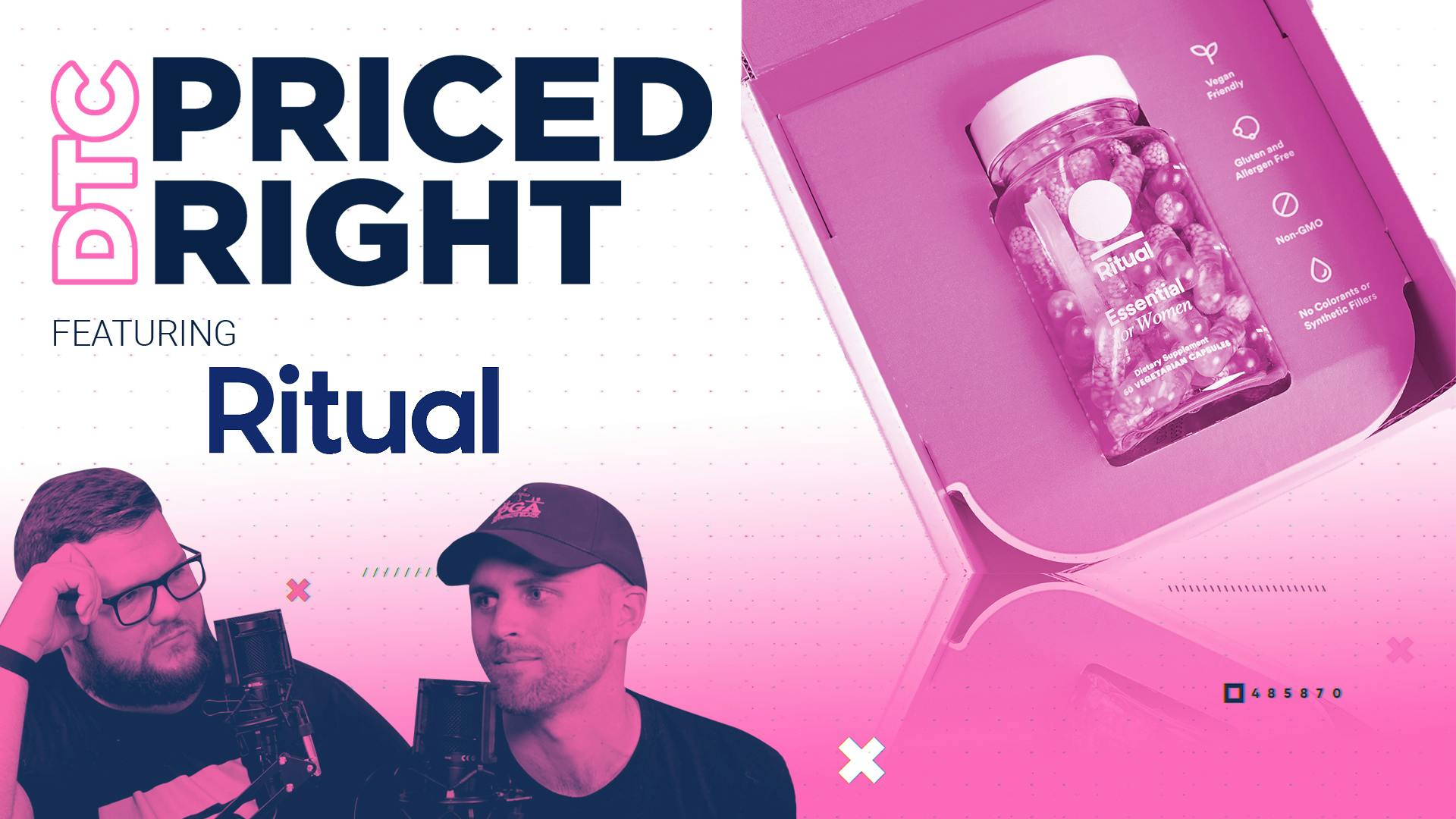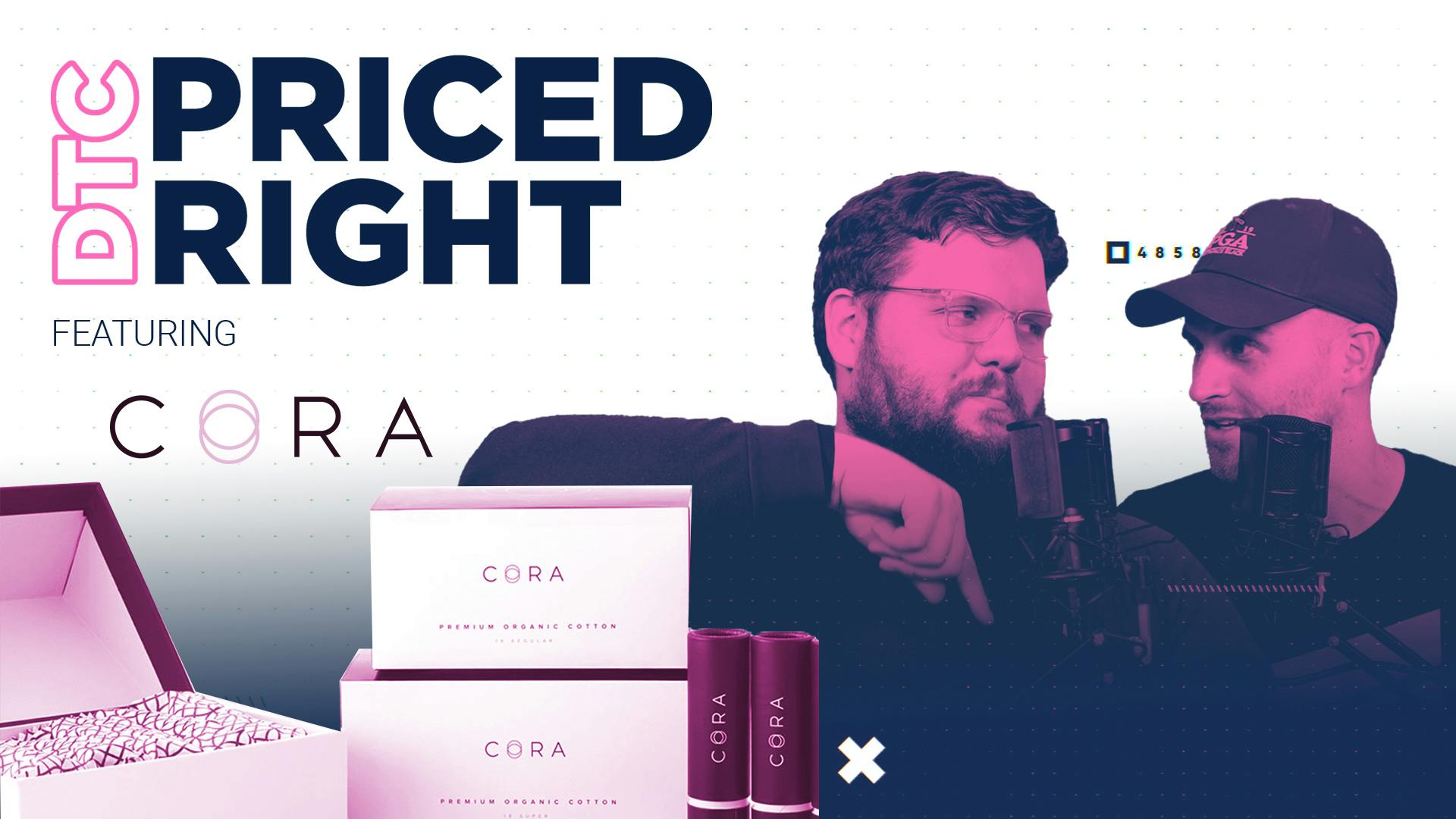
Boxed Water's retention is thirsty
This episode might reference ProfitWell and ProfitWell Recur, which following the acquisition by Paddle is now Paddle Studios. Some information may be out of date.
Please message us at studios@paddle.com if you have any questions or comments!
Today we're talking about Boxed Water is Better, a company that's taken on the multi-billion dollar water market by showing us just how environmentally terrible all the other options are. We're going to learn how Boxed Water is Better used integrity and positioning to their advantage and then we're going to jump into what their retention strategy does well, and not so well, so you can use what we talked about today, as a nice case study for your own DTC brand.
Key takeaways:
Cancellation flow needs modifying
The secret to reducing cancellation is understandingwhya customer is cancelling. It's crucial to gatherinformation, as well as provide salvage offers. Companies that properly utilize salvage offers and a clear offboarding experience tend tosave 15-30% more customers.
- Offer the option to pause their subscription or skip a month.
undefinedundefined
Improve expansion revenue efforts
Boxed Water needs to do more with their expansion revenue including offering an option for a subscription donation. It's at the heart of their social brand. Additionally, our data shows thatdonations boost retention by 10-20%.
- Add the donation to the checkout flow, or after, in the add-ons.
undefined
Credit card failure process needs to be refurbished immediately
It's crucial to get updated payment information because delinquent customers won't return. Credit card failures account for20-40% of your churn and cancellations,and Boxed Water is losing a lot of revenue by doing the minimum.
- Send four to five plain text emails that go out in an intelligent drip based on the customer's behavior.
undefinedundefined
Boxed Water is Better
Each year about 62 billion water bottles are wasted. A majority of those are expelled into the ocean releasing toxic chemicals known to cause disease and even cancer. Soil pollution is also caused by plastic bottles that contain “MPs,” or microplastics. Even the very manufacturing of bottled water is an environmental hazard. A single plastic bottle of water requires three times the volume of water it takes to fill a single bottle. Consequently, the chemicals utilized in the production of a plastic bottle, leave most of that water useless.Benjamin Gott saw the need for a more eco-friendly delivery of water to help conserve our planet’s resources. With a strong belief that sustainability matters, and wanting to give back, he founded Boxed Water in 2009. It all started with the idea to create a new bottled-water brand that was environmentally friendly, but Gott realized that water should not be bottled at all—instead, it should be boxed. Boxed Water was built on three principles: sustainability, efficiency and philanthropy.
Boxed Water's success
There’s two major components for Boxed Water’s success.
First, Boxed Water has done a phenomenal job with its caused-based product marketing. This is a brand that stands for something. Consumers are more aware than ever before about the deteriorating state of our environment due in large part to plastic waste.
And second, Boxed Water is providing an all-around positive consumer experience. It ensures customers know they’re making a difference by simply being consumers of Boxed Water. It eliminates plastic waste while inspiring them to be a part of a community—a movement—doing a lot of good for our planet.
Boxed Water is produced through a process of reverse osmosis and carbon-filtered purification at the source of the filling plant, so it’s as pure and healthy for the body as it is for the environment. Boxed Water’s socially-conscious objective extends to the way water is sold, shipped, and consumed. Each carton is made using renewable paper from certified, sustainable forests and is 100 percent recyclable. Boxed Water also has a reduced carbon footprint and increased efficiency by shipping its cartons flat to the plant to be filled. Once filled, its square-shape also reduces shipping waste compared to round bottles - decreasing the number of trucks needed to transport the product.
Since its launch, Boxed Water has been making noise in the multi-billion dollar bottled-water, or rather, “convenience-water” industry, becoming the preferred brand for eco-conscious consumers. People rave about the packaging, enjoy the crisp taste of the water, and most importantly, love that it’s serving a cause. But is there more they could be doing?
Boxed Water's retention review
Boxed Water's retention needs work; however, there's still a lot we can learn from them. Most brands don't focus on this aspect of their business enough, but they should.
Why is retention important?
You spend half of your budget and time acquiring customers, but to be successful, you need to keep them. The beauty of the subscription model is that the relationship with the customer is baked directly into how you make money. If that customer is happy, they'll keep buying from you in the long term. If they're upset or not seeing the value, they'll cancel—quickly.
Plus, money talks here. Subscription ecommerce companies using the tactics we're going to talk about have 2x the customer lifetime value (LTV), 2x the average order value, and 3x higher growth rates, because they're not worried about plugging a leaky retention bucket.
To highlight the importance here, let's look through Boxed Out's retention strategy and break down what they're doing well, and not so well, so you can learn for your own DTC business.
Retention has three parts:
- Active churn, which are customers who are actively choosing to cancel your product.
- Expansion revenue, which are your existing customers that buy more product.
- Delinquent (or involuntary) churn, which are customers who's credit card or payment has failed, which sadly is one of the largest single buckets of where you're losing money.
Boxed Out's active churn:
When we look at Boxed Water's active churn, there are so many reasons why a customer may cancel. We want to make sure Boxed Water is not only setting up their customers for long-term retention in the initial purchasing process, but that they're also collecting information on why someone's cancelling, if they so happen to, in order to get a clean cycle of retention improvement.
The bad:
Boxed Water isn't doing much for their active churn beyond the ultimate basics. In their checkout flow they do ask for you to adjust the frequency of the subscription, but there isn't much else in terms of trying to get you embedded in the subscription.
Another area that needs improvement is their offboarding flow, where they asked you why you were looking to cancel. They're likely using this information in order to improve in the future, but there was no prompt based on the selection chosen—to pause the subscription, skip a month, or even a salvage offer. It was good, but not great.
A decent cancellation flow is crucial. We've found that those companies that properly offer up salvage offers and a clear offboarding experience tend to save 15-30% more customers who go through a cancellation flow. This is based on a study we completed on just over 1,000 DTC subscription companies.
The good:
One highlight to point out though, is the cause-based product marketing that Boxed Water employs. They’re great at convincing you of the importance of boxed water over the plastic alternatives. This marketing gets your users bought into the brand further.
Boxed Water's expansion revenue prowess:
Expansion revenue is crucial, because your existing customers are more than willing to buy 3x more from you—you just have to make sure to ask. Plus, those customers who have at least one add-on or additional purchase tend to have 18-54% higher lifetime value, meaning they're paying you more over the life of the subscription, but they're also sticking around longer, because they're more engrained within your product.
Needs improvement:
Besides offering additional products and variations of Boxed Water, the brand isn't doing much in terms of expansion revenue, so we don't really have anything to show you. We didn't receive any upsells in the checkout process, nor any additional emails to persuade us to potentially check out some upsells.
Remember that “subscribe and save” goes beyond a discount and to a valuable relationship that's built with the customer. Offer a chance to add swag to their cart, or maybe to try a sample of the new matcha drink. Do something to keep customers in the sphere of influence of the entire brand.
Their confirmation page could be a good opportunity for some of these add-ons, or even referring a friend to purchase the product. There's a lot that could be done here.
Boxed Water's credit card failure flow:
Now let's talk about the sexiest topic in the world—credit card failures. We know you don't wake up sweating in the middle of the night thinking about credit cards—that's our job—but here's why we obsess over things like this: just under 40% of the customers that leave you are leaving you because of failed payments. To get these folks back, we want to make sure Boxed Water is treating these folks like a marketing channel, sending them messages before the point of failures, all the way to after the point of failure through email and text messages.
Needs improvement:
This is where Boxed Water did more than other areas, but it's also the area with the most opportunity for improvement. They sent us four emails to get updated card details, but all of the emails were the same. They were all pseudo plain text and pseudo market-y style emails.
The key is to have four to five emails in an intelligent drip over a 14-day period after the initial card fails. And it should build over time—meaning the language should vary and create more urgency as we get closer to day 14. If you don't get updated payment information, these customers aren't coming back, but you can make this a great experience by spending some time on the copy.
These emails should be plain text. We find plain text works much better than HTML, market-y emails. Have them come from a human being and make sure the copy really boosts the value of the product. We don't want people ignoring these emails and when they appear to come from an individual human being, recipients are more inclined to act. Furthermore, they should be sending a text. We didn't receive any of those for the payment failure.
Another improvement that should be made is facilitating the process of updating the credit card information. They sent us back to the homepage. This adds friction, and many DTC customers don't actively log in to their accounts, so they’re likely to forget passwords. Boxed Water should structure it in a way that when you click through, you go to a form that doesn't require any logins, and instead just takes your updated payment information cleanly.
Based on what we're seeing, Boxed Water could more than double their recovery rate. We don't have perfect insight into their business, but that's likely hundreds of thousands of dollars more in lifetime value.
Overall:
To summarize, Boxed Water is doing a below-average job with their retention, and a good amount of work is needed. They need to take the talent they've applied to the brand, product, and experience and apply it more to the retention side of their business.
Retention revamp
Let's revamp. First though, why do we feel we have any authority to even talk about this? Roughly 20% of the entire subscription market is using ProfitWell, so we're sitting on more data than anyone else. Simply put, we have the data to know what works and what doesn't, and we care more about this problem than anyone else out there.
Let's walk through three big things we'd change immediately about Boxed Water's retention strategy, so we can all learn for our own brands.
3 takeaways:
- Modify cancellation flow
Boxed Water needs to change their cancellation flow. Right now it's purely mechanical and only surface level. The secret to reducing cancellation is understanding why a customer is cancelling so you can improve the experience and use the data to prevent further cancellations, and also to save that customer.
If the customer marks that they had a problem with support, then give them the address or phone number of support. If they say something around not seeing the value, give them a discount or offer to stick around for an extra month. Bread and butter options are giving the customer the option to skip or pause their subscription. You need something to try and prevent the cancellation, and right now Boxed Water is losing customers because they're doing nothing.
Add a little bit of friction—not a lot—but enough to learn and save as many customers as possible. These can also be in the form of win-back campaigns after the cancellation, through email. - Improve expansion revenue with a charitable donation
Boxed Water should do more with their expansion revenue including offering an option for a subscription donation. We saw essentially nothing in terms of adding additional products or cross-sells. Boxed Water should add a simple modal as you go to checkout that offers up either a sample of their new matcha drink, or even the ability to add swag.
The more committed to the brand a customer becomes, the more likely they are to add more to their subscription, or to simply continue purchasing from Boxed Water.
Boxed Water is primed to take advantage of a recurring donation. It's at the heart of their social brand and if they simply added an option for their customers to add a donation to their subscription they'll not only accelerate their charitable mission, but they'll also increase their retention. Customers who subscribe to a donation tend to retain at a 10-20% higher rate than those without the donation. This is based on a study we conducted on just over 30,000 DTC subscription customers.
People love to be a part of a movement and love to signal that movement with their purchases, but also their direct dollars. - Refurbish credit card failure flow
Boxed Water needs to refurbish their credit card failure flow as soon as possible. They're losing a lot of revenue by doing the absolute basics. They need four to five plain text emails that go out in an intelligent drip based on user behavior. They need text messages, card expiration messages, and they need to allow users to update their payment information without logging in.
There's hope for Boxed Water because these are minor changes that'll have a huge impact. I'm pumped to see if Boxed Water heeds our advice, and whether they'll gain market share and improve retention down the road.
Who's up next?
Next week we're going to the world of biohacking and talking about a company who's founder wants to live to 150 years old. They're taking on the multi-billion dollar wellness and supplements space, but doing it in a way that’s community focused. The DTC brand we'll be digging into is Bulletproof. So, make sure you subscribe to Boxed Out, and tell your friends so we can get this knowledge into the as many hands as possible.






